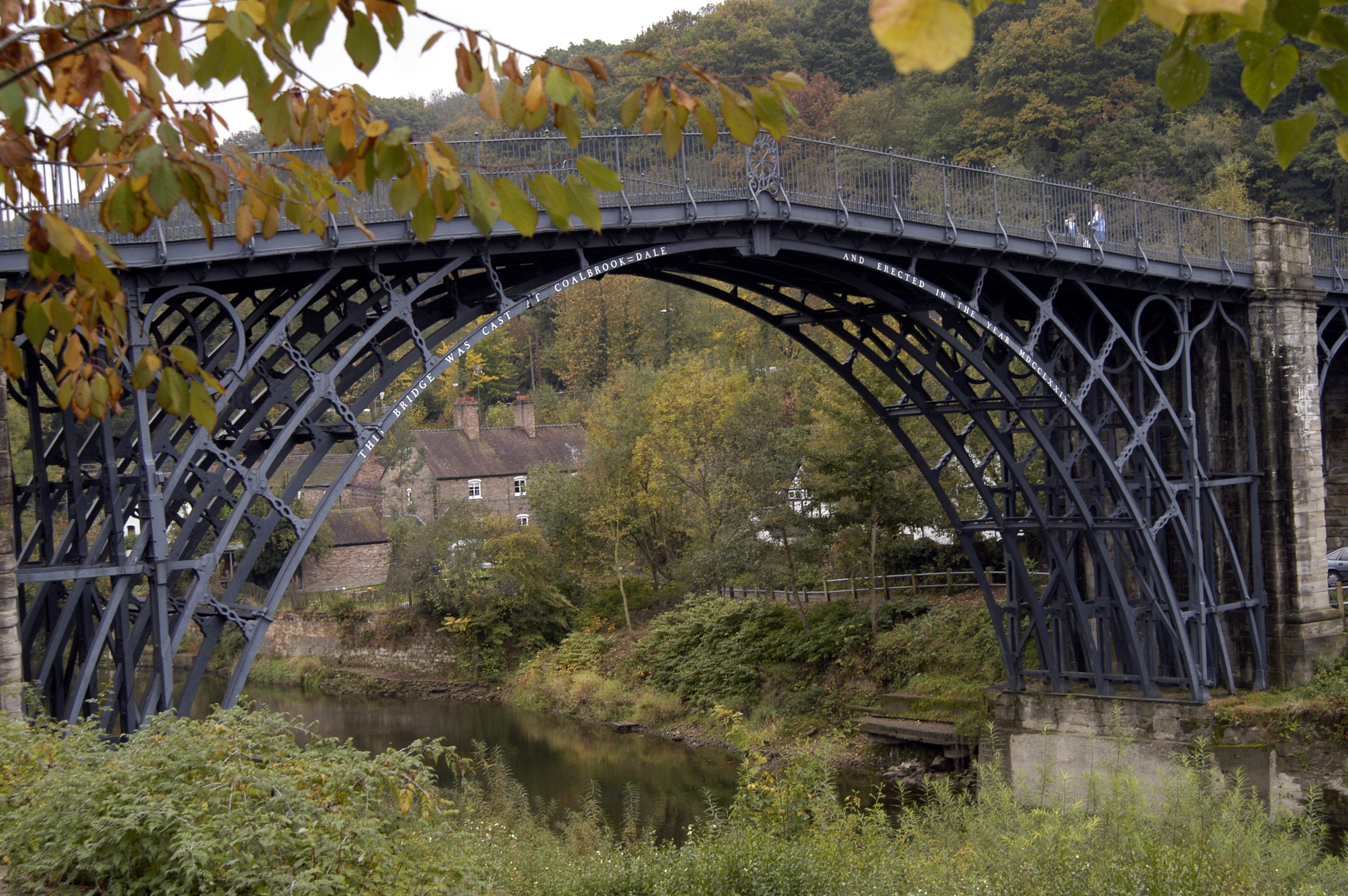Abraham Darby III on:
[Wikipedia]
[Google]
[Amazon]
 Abraham Darby III (24 April 1750 – 1789) was an English
Abraham Darby III (24 April 1750 – 1789) was an English
 In 1985 a rose cultivar Rosa 'Abraham Darby' bred by David C.H. Austin was named after Abraham Darby.
In 1985 a rose cultivar Rosa 'Abraham Darby' bred by David C.H. Austin was named after Abraham Darby.
Article in Dictionary of National Biography
Biography of Abiah Darby in DNB (requires subscription)
{{DEFAULTSORT:Darby, Abraham III 1750 births 1791 deaths People of the Industrial Revolution People from Coalbrookdale English ironmasters English Quakers 18th-century ironmasters 18th-century British artisans
ironmaster
An ironmaster is the manager, and usually owner, of a forge or blast furnace for the processing of iron. It is a term mainly associated with the period of the Industrial Revolution, especially in Great Britain.
The ironmaster was usually a larg ...
and Quaker. He was the third man of that name in several generations of an English Quaker family that played a pivotal role in the Industrial Revolution
The Industrial Revolution, sometimes divided into the First Industrial Revolution and Second Industrial Revolution, was a transitional period of the global economy toward more widespread, efficient and stable manufacturing processes, succee ...
.
Life
Abraham Darby was born in Coalbrookdale,Shropshire
Shropshire (; abbreviated SalopAlso used officially as the name of the county from 1974–1980. The demonym for inhabitants of the county "Salopian" derives from this name.) is a Ceremonial counties of England, ceremonial county in the West M ...
, in 1750, the eldest son of Abraham Darby the Younger (1711–1763) by his second wife, Abiah Maude, and educated at a school in Worcester kept by a Quaker named James Fell.
At age thirteen, Darby inherited his father's shares in the family iron-making businesses in the Severn Valley, and in 1768, aged eighteen, he took over the management of the Coalbrookdale ironworks. He took various measures to improve the conditions of his work force. In times of food shortage he bought up farms to grow food for his workers, he built housing for them, and he offered higher wages than were paid in other local industries, including coal-mining and the potteries. He built the largest cast iron
Cast iron is a class of iron–carbon alloys with a carbon content of more than 2% and silicon content around 1–3%. Its usefulness derives from its relatively low melting temperature. The alloying elements determine the form in which its car ...
structure of his era: the first cast-iron bridge ever built, as a crossing over the Severn near Coalbrookdale. The bridge made it possible for the village of Ironbridge to grow up around it, with the area being subsequently named Ironbridge Gorge.
In 1776 Darby married Rebecca Smith of Doncaster
Doncaster ( ) is a city status in the United Kingdom, city in South Yorkshire, England. Named after the River Don, Yorkshire, River Don, it is the administrative centre of the City of Doncaster metropolitan borough, and is the second largest se ...
, and they had seven children, of whom four survived to adulthood. He died in Madeley aged only 39 and was buried in the Quaker burial ground in Coalbrookdale. His sons Francis (1783–1850) and Richard (1788–1860) both worked in the Coalbrookdale Company.
Tributes
Asecondary school
A secondary school, high school, or senior school, is an institution that provides secondary education. Some secondary schools provide both ''lower secondary education'' (ages 11 to 14) and ''upper secondary education'' (ages 14 to 18), i.e., b ...
in Telford
Telford () is a town in the Telford and Wrekin borough status in the United Kingdom, borough in Shropshire, England. The wider borough covers the town, its suburbs and surrounding towns and villages. The town is close to the county's eastern b ...
, UK, is named after Abraham Darby III. The school's name is Abraham Darby Academy.
See also
*Abraham Darby I
Abraham Darby, in his later life called Abraham Darby the Elder, now sometimes known for convenience as Abraham Darby I (14 April 1677 – 5 May 1717, the first and best known of Abraham Darby (disambiguation), several men of that name), was ...
* Abraham Darby II
* Abraham Darby IV
References
External links
Article in Dictionary of National Biography
Biography of Abiah Darby in DNB (requires subscription)
{{DEFAULTSORT:Darby, Abraham III 1750 births 1791 deaths People of the Industrial Revolution People from Coalbrookdale English ironmasters English Quakers 18th-century ironmasters 18th-century British artisans